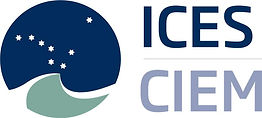The partnerships that will foster sustainable research
Our Network
Research infrastructures are at the core of the knowledge triangle of Research, Education, and Innovation and, therefore, facilitate innovative solutions. They are organisations that enable the research community to use specific facilities, resources, and services to accelerate scientific achievements and promote sustainable research.
AQUASERV comprises a network of 6 European research infrastructures, gathering over 30 scientific partners covering research and innovation for sustainable aquaculture, fisheries, ecological restoration and the blue economy.
Through this network, AQUASERV offers service coverage in 16 countries around European seas (Baltic, Northeast Atlantic and Mediterranean) and inland waters.

The Research Infrastructures
The International Council for the Exploration of the Sea (ICES) is a world-leading marine science organization that meets societal needs for impartial evidence on the state and sustainable use of our seas and oceans. It provides fisheries management advice to policy makers, access to a well-established Data Centre and training. ICES coordinates science research through 3500 experts in more than 100 expert groups and, every year, it brings together leading fisheries, aquaculture, marine ecosystem, and social scientists at The ICES Annual Science Conference, counting with more than 500 participants on site and a strong online level of engagement
Adding 16 partners to our consortium, the European Marine Biological Resource Centre (EMBRC) is the European research infrastructure for marine biology and ecology, including bioprospecting. The partnership has run the two ASSEMBLE projects, joint research infrastructure initiatives like AQUASERV, with over 1000 users and 630 scientific articles published, many in top journals. Some EMBRC-ERIC partners are also members of ELIXIR/EOSC-Life (life science data) and contribute to EMODNET, Blue Cloud, EU DTO and EOSC.
With the objective of understanding the complex impact of global change drivers on ecosystems across Europe, Analysis and Experimentation on Ecosystems (AnaEE-ERIC) integrates modelling and experimentation of marine and freshwater ecosystems, including fisheries. AnaEE-ERIC coordinates the AgroServ project that join the efforts of 11 European research infrastructures, representing 72 partners and providing transdisciplinary services for the resilience and adaptation of agriculture at large (including continental and marine aquaculture), and the agroecological transition.
The AQUAEXCEL network is an established aquaculture research infrastructure, contributing with 16 partners specialized in the area for this project. It currently runs in its 3rd edition with 260 projects carried out by ~500 users, covering all aspects of fish, mollusc, and algae aquaculture. They are currently expanding their own Transnational Access programme to its high-quality facilities.
The Infrastructure for Promoting Metrology in Food and Nutrition (METROFOOD-RI) is dedicated to food and nutrition sciences, including processing, quality, traceability and authenticity, environmental safety, and human health. Currently this research infrastructure comprises an important cross-section of highly interdisciplinary and interconnected fields throughout the food value chain and is in the ESFRI preparatory phase.
The European Aquaculture Society (EAS) is an independent non-profit association, created in 1976, that promotes contacts and disseminates information to stakeholders of European aquaculture. EAS has 1000 members in more than 60 countries. The Aqauaculture Europe events organized by the society are, currently, one of the major forums for multi-disciplinary aquaculture research and innovation, bringing together 2000 attendees and communication activities within EU projects.
The Partners
Belgium

European
Aquaculture Society (EAS)
Czech Republic
Denmark
.jpg)
International Council for the Exploration of the Sea (ICES)
Finland
France

Analysis and experimentation on ecosystems ERIC (AnaEE)

Institut Francais de Recherche Pour L’exploitation de la Mer (IFREMER)

French National Research Institute for Agriculture, food and environment
(INRAE)

Gustave Eiffel University, ESIEE Paris (UGE)
Greece
Hungary
Italy
Netherlands
Norway

University
of Bergen (UiB)
Portugal

Interdisciplinary Centre of Marine and Environmental Research (CIIMAR)
Slovenia
Spain

Plentzia Marine Station of the University of the Basque Country
(UPV/EHU - PiE)
Sweden

University of Gothenburg (UGOT),
Kristineberg Center for Marine Research and Innovation
Türkiye

Scientific and Technological Research Council of Turkey (TÜBİTAK)

.jpg)































